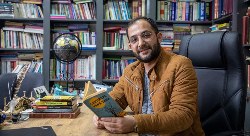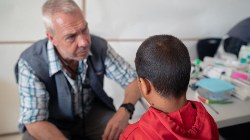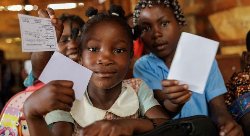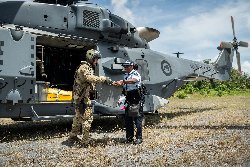Constitutional changes in Cambodia impinge on democracy
GENEVA (20 February 2018) – Two UN human rights experts expressed their grave concern about proposed changes to Cambodia’s Constitution which would impose far-reaching limits on democracy ahead of a national election this year, and beyond.
The changes, along with other proposed changes to domestic law including a lese majeste provision making it illegal to insult the monarchy, were adopted by the lower chamber of parliament on 14 February only 12 days after first being adopted by the Council of Ministers. The proposed changes raise serious risk of violating human rights law, the experts said.
“Lese majeste provisions are incompatible with Cambodia’s obligations under international human rights law, as they criminalize the legitimate exercise of freedom of speech,” said Rhona Smith, UN Special Rapporteur on the human rights situation in Cambodia, and David Kaye, UN Special Rapporteur on the promotion and protection of the right to freedom of opinion and expression.
“Moreover, a number of the proposed Constitutional amendments use broad terminology and would need more precise language to meet international standards and avoid the risks to freedom of speech.”
Areas of concern highlighted by the Special Rapporteurs include the proposed requirement for parties and individuals to “primarily uphold the national interest” and another opposing “interference from abroad”.
Among the changes are also provisions leaving open the possibility that people’s right to vote be suspended or withheld.
“The right to political participation and freedom of expression are of particular importance during electoral processes, and the authorities have a responsibility to ensure that individuals, political parties and the media can operate without being sanctioned.”
Last year, the Supreme Court outlawed the opposition Cambodia National Rescue Party (CNRP) at the request of the government, after its leader, Kem Sokha, was arrested for alleged treason.
In total, five articles of the Constitution would be changed, along with areas of the Law on the Constitutional Council.
The proposed new crime of insulting the King would be punishable by up to five years in prison and fines of up to 10 million Riels for any “speeches, gestures, writings, paintings or items” that “affect the dignity” of the monarch. Organizations found guilty could be dissolved, placed under judicial supervision, banned from carrying out activities, closed down, or have their funds and property confiscated.
“We urge the Government of Cambodia to carry out a rigorous and thorough reassessment of the draft amendments to ensure they comply with international human rights laws and standards,” the experts said.
“The public should also be consulted and given time to freely debate the amendments, especially as some of these proposals change the constitution. The current lack of public consultation is concerning.”
Ms. Smith has communicated her views in detail to the Cambodian Government.
In October she warned that democracy was under threat in Cambodia after moves against the opposition.
ENDS
Professor Rhona Smith (United Kingdom) was appointed as Special Rapporteur on the situation of human rights in Cambodia by the UN Human Rights Council in March 2015. Mr. David Kaye (USA) was appointed as Special Rapporteur on the promotion and protection of the right to freedom of opinion and expression in August 2014 by the United Nations Human Rights Council.
Special Rapporteurs, they are part of what is known as the Special Procedures of the Human Rights Council. Special Procedures, the largest body of independent experts in the UN Human Rights system, is the general name of the Council’s independent fact-finding and monitoring mechanisms. Special Procedures mandate-holders are independent human rights experts appointed by the Human Rights Council to address either specific country situations or thematic issues in all parts of the world. They are not UN staff and are independent from any government or organization. They serve in their individual capacity and do not receive a salary for their work.
Check the Special Rapporteur’s reports on Cambodia.
UN Human Rights, country page: Cambodia


 UN News: Healing Page By Page In Earthquake-affected Türkiye
UN News: Healing Page By Page In Earthquake-affected Türkiye Save The Children: Rate Of Attacks On Healthcare in Gaza Higher Than In Any Other Conflict Since 2018
Save The Children: Rate Of Attacks On Healthcare in Gaza Higher Than In Any Other Conflict Since 2018 UN News: Green Light For New Cholera Vaccine, Ukraine Attacks Condemned, Action Against Racism
UN News: Green Light For New Cholera Vaccine, Ukraine Attacks Condemned, Action Against Racism Laureus: Grand Slam Champion Garbiñe Muguruza Announces Retirement Ahead Of Laureus World Sports Awards
Laureus: Grand Slam Champion Garbiñe Muguruza Announces Retirement Ahead Of Laureus World Sports Awards Carbon Market Watch: Going For Green - Is The Paris Olympics Winning The Race Against The Climate Clock?
Carbon Market Watch: Going For Green - Is The Paris Olympics Winning The Race Against The Climate Clock? New Zealand Defence Force: NZDF Working With Pacific Neighbours To Support Solomon Islands Election
New Zealand Defence Force: NZDF Working With Pacific Neighbours To Support Solomon Islands Election